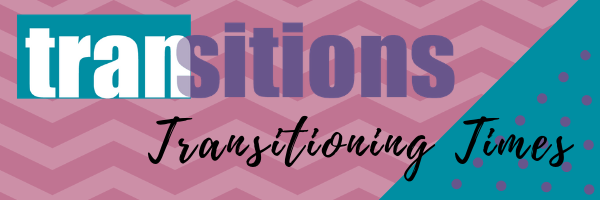The Intersections of Justice – Human Trafficking
As we begin to wrap up National Human Trafficking Awareness Month, I am encouraged. On January 10th, Transitions hosted a screening of the film I am Jane Doe, at the Campus Theatre in Lewisburg. We saw over 300 people from this community come out to watch a film about child sex trafficking. (http://www.dailyitem.com/news/local_news/campus-theatre-screens-documentary-on-sex-trafficking/article_e84d3178-6023-5452-b0e2-f071fa217f7a.html)
I still remember in high school when I would talk about trafficking with my peers, teachers, etc. and they thought I was crazy. It's wonderful to see the turn around in awareness and support of this issue. I've been rallying around this cause for 10+ years, and I watched the change in attitude. Though there is still so much to be done, this has become a topic people care about and are invested in changing.
Combatting human trafficking was my passion for many years. In pursuit of that dream, I got involved with Transitions as an undergraduate social work student in 2013. As I’ve seen many more advocates for this cause compared to when I first was learning about it over 10 years ago, I can't help but move in a direction where there aren't as many advocates. My horizons of what it means to fight for justice have expanded greatly this past year.
Even working with and advocating for victims of domestic violence and sexual assault is a huge area where this can and needs to be done. As many powerful figures have been exposed for sexual assault and harassment this past year, the cover-ups and excuses in various institutions remind me how much work we have to do to bring an end to domestic violence and sexual assault, which has reinforced my passion for this population. I continue to learn a lot about what it means to fight for equality and reconciliation for marginalized groups, and that is where my heart lies now.
But the truth is, evils like human trafficking and sexual assault don’t exist separately from other issues of justice and equality. We can’t talk about human trafficking without talking about racism and the history of racial injustice. We can’t talk about sexual assault without talking about the disproportionate effect on black women. We can’t talk about human trafficking without talking about poverty and classism, which also disproportionately affect people of color.
We have to make sure we’re getting the entire picture before we can effectively work to dismantle the problem. Human trafficking and sexual assault can and does affect every class, race, religion, gender, etc. However, we know that certain populations experience these things at a much higher rate. The more vulnerability someone has, the higher chance they have of experiencing violence. This is the intersection of justice.
It's easy to say you stand against human trafficking -- I've always received lots of praise for my passion. But when I start talking about things like racism and inclusion, people aren't so quick to rally behind me. One is a distant problem, and one confronts our own comfort and privilege. As I go forward on my journey of advocating for marginalized people, whether here at Transitions or in my everyday life, I strive to speak truth and advocate for those who are treated unjustly in this country, including people of color, the LGBTQIA community, women, Muslims, the disabled, the poor, etc. As we work toward equality, I believe we will be simultaneously working toward dismantling the evil that is human trafficking. As we dismantle racism, sexism, classism, ageism, ableism, homophobia, and xenophobia, we will be fighting the power dynamics that allow human trafficking to exist.
Written by Missy H., Union County Legal Advocate


Comments
Post a Comment